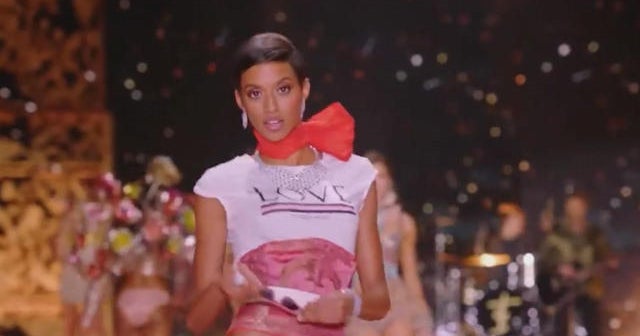The End of an Era: Victoria’s Secret Fashion Show Officially Axed
In a stunning announcement that reverberates throughout the fashion industry, Victoria’s Secret has declared the cancellation of its once-iconic fashion show, a hallmark of the brand for nearly three decades. This decision not only signifies the end of a cultural phenomenon but also marks a pivotal shift in how the company approaches marketing and inclusivity.
A Legacy of Glamour and Controversy
Since its inception in 1995, the Victoria’s Secret Fashion Show has been synonymous with glamour, featuring some of the world’s top supermodels and extravagant performances. However, it has also faced significant criticism over the years for its portrayal of women and narrow standards of beauty. As society evolves, so too do expectations regarding representation in fashion.
The Reasons Behind the Cancellation
- Changing Consumer Preferences: Today’s consumers are increasingly advocating for authenticity and diversity in marketing. The traditional portrayal of beauty, as epitomized by the Victoria’s Secret models, is being challenged by a broader definition that celebrates all body types, races, and identities.
- Shift Towards Inclusivity: Victoria’s Secret has struggled to adapt to the growing demand for representation. The rise of brands that champion body positivity and inclusivity has put pressure on the company to reconsider its marketing strategies.
- Financial Considerations: Over the past few years, Victoria’s Secret has seen a decline in sales, leading executives to reevaluate their business model. The extravagant production costs associated with the fashion show may have become untenable in the face of declining revenues.
The Impact on the Fashion Industry
The cancellation of the Victoria’s Secret Fashion Show marks a watershed moment in fashion, signaling a possible end to the era of traditional runway shows that prioritize spectacle over substance. This decision is likely to have far-reaching implications for the industry, prompting other brands to reassess their marketing strategies and consider more inclusive approaches.
Looking Ahead: The Future of Victoria’s Secret
In the wake of this announcement, many are left to ponder what the future holds for Victoria’s Secret. The company has already begun to pivot towards a more inclusive approach, with the introduction of new marketing campaigns that feature a diverse range of models and body types. This shift may signal a broader trend within the fashion industry, moving away from the hyper-sexualized imagery that has long characterized Victoria’s Secret.
Adapting to a New Landscape
As Victoria’s Secret navigates this new landscape, it will be crucial for the brand to maintain authenticity and connect with its audience on a deeper level. This could involve collaborations with influencers and artists who resonate with the brand’s evolving identity. Incorporating feedback from consumers will also be vital in shaping future marketing campaigns.
The End of an Era or the Beginning of a New Chapter?
The cancellation of the Victoria’s Secret Fashion Show can be seen as both an end and a beginning. While it marks the end of a long-standing tradition, it also opens the door for new possibilities within the brand. The fashion industry is at a crossroads, and the moves made by Victoria’s Secret will likely set a precedent for others to follow.
Conclusion: A Call for Evolution
As Victoria’s Secret embarks on this journey of transformation, the overarching lesson remains clear: evolution is essential in the fashion industry. Brands must be willing to adapt to the changing tides of consumer expectations and societal norms. Whether this marks the end of an era or the onset of a new chapter for Victoria’s Secret is yet to be determined, but one thing is certain—the conversation around inclusivity and representation in fashion is far from over.
See more CNET Live

